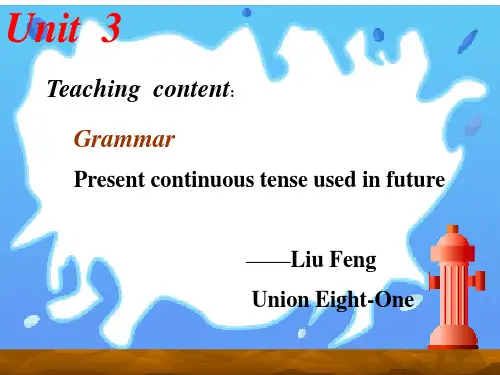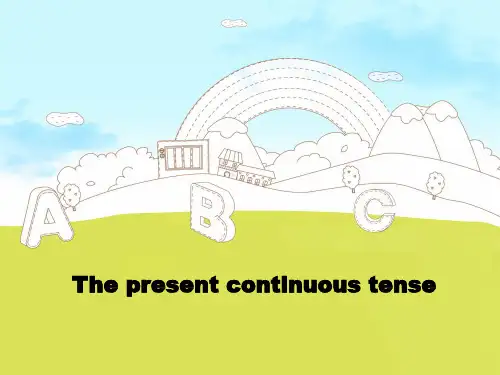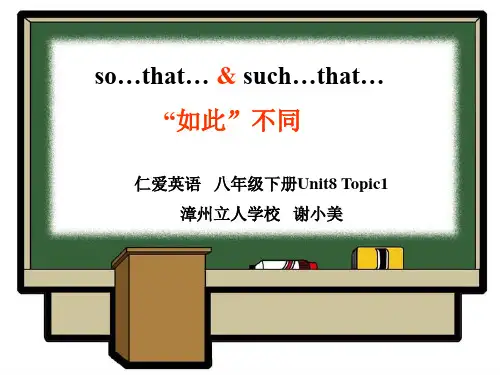e.g. I’m leaving at seven tonight.
Task3: consolidation
Filling in the blanks by using the Present Continuous Tense 1. ---Why have you slept so early?
Affection and attitude:
Foster among students proper attitude needed for language learning—willingness to imitate,think and cooperate.
Language focus:
the difficult and important points:
3. When are we leaving and when are we coming back?
Do these sentences all represent the present continuous? What is the difference among them?
Task 2: Observation and sum up
with me for the weekend 6. Ladies and gentlemen, please fasten your
seat belts. The plane is taking off. leaving going coming moving taking off
Sum up
When the action verbs and verbs of tropism such as go, come, leave, get, arrive, meet, see off, take off, return, start, fly, stay, etc. are used in the Present Continuous Tense, they often represent the future, and there is often an indication of time. The action is usually regarded as having been decided upon beforehand.




